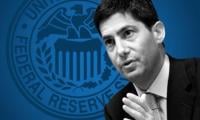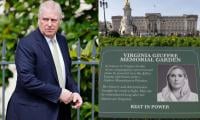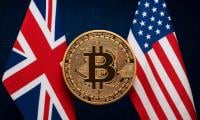Perplexing ‘advice’
Pemra’s latest ‘advice’ to news channels, restricting the use of videos from social media while reporting on natural disasters is a lesson in absurdity, even given the electronic media regulator’s past recommendations. In a directive issued on July 31, the authority expressed ‘grave concern’ over the reporting of natural disasters through the use of videos circulating on social media instead of news channels’ own footage and termed such recent coverage of the torrential rains in the capital as ‘hoax reporting’, whatever that means. Per Pemra, the ‘fact’ was that roads had been cleared once the rains had stopped and thus the ‘unnecessary hype’ by TV channels caused ‘fear and trauma’ among viewers. The regular has said that viewers assert that channels are obliged to broadcast ‘authentic’ news with official versions of the relevant authorities. Moreover, these ‘complainants’ believe that instead of focusing repeatedly on just one news item and spreading ‘stress, fear, and negativity’, channels should report on other developments across the country and the world.
The fact is that the ban on using footage from social media runs contrary to established news customs across the world now, wherein the broadcast of such videos falls under the ambit of citizen journalism and its employment a common practice so long as it is verified and sourced since a limited number of reporters cannot be expected to be everywhere and reach remote areas on time. The fact also is that media regulation is a job that requires both extreme responsibility and utmost caution. Basing directives to news channels – or any channels really – on responses from unidentified viewers and complainants to infringe on journalists’ professional space and curtail freedom of expression should not become the norm.
Unfortunately, the impression that such regulation has become a tool at the disposal of sitting governments to squeeze news organisations has only gained more traction in recent years. This is despite the ruling party’s manifesto acknowledging the regulator’s past in curbing freedom of expression, and promising to make the authority free of government interference. Pemra must make every effort to dispel these perceptions of partisanship and ensure it doesn’t end up at loggerheads with the news media – a position it found itself in earlier this year when the Association of Electronic Media Editors and News Directors vowed to resist its decision to refrain from sources-based reporting of cabinet meetings. Similarly, the authority’s directives in 2019 restricting talk show hosts to being ‘moderators’ without expressing opinions and ordering them not to appear as guests in other shows led to a severe backlash by journalists as well as a show-cause notice by the Islamabad High Court after which the decision was subsequently reversed. There is little doubt that Pemra finds itself faced with a rather unenviable task, something that should have ideally been left to the media themselves. That said, there is a need for responsible action by regulators. That means taking to task those who do not follow the basic tenets of journalism without punishing journalism which lives up to its mission of comforting the afflicted and afflicting the comfortable.
-
 White House Officially Nominates 'Kevin Warsh' As Fed Chair To Senate: Here's Why
White House Officially Nominates 'Kevin Warsh' As Fed Chair To Senate: Here's Why -
 'Abbott Elementary' Gets Season 6 Renewal At ABC
'Abbott Elementary' Gets Season 6 Renewal At ABC -
 Turkey To Ban Social Media For Under-15s Over Child Safety Concerns
Turkey To Ban Social Media For Under-15s Over Child Safety Concerns -
 Lucy Boynton Tapped To Star In 'Knight Of The Seven Kingdoms' Season 2
Lucy Boynton Tapped To Star In 'Knight Of The Seven Kingdoms' Season 2 -
 Sarah J. Maas To Drop Bombshell On 'Call Her Daddy' Podcast About ACOTAR 6?
Sarah J. Maas To Drop Bombshell On 'Call Her Daddy' Podcast About ACOTAR 6? -
 Virginia Giuffre Continues To Haunt Buckingham Palace
Virginia Giuffre Continues To Haunt Buckingham Palace -
 Thomas Fugate: Trump's Pick For Terrorism Prevention Renews Concerns Amid War
Thomas Fugate: Trump's Pick For Terrorism Prevention Renews Concerns Amid War -
 Meghan Markle Insider Finally Drops What Coming To ‘As Ever’
Meghan Markle Insider Finally Drops What Coming To ‘As Ever’ -
 Rachel Lindsay Slams Ex Bryan Abasolo For Lying About Her Fertility Struggles
Rachel Lindsay Slams Ex Bryan Abasolo For Lying About Her Fertility Struggles -
 Prince William's Ongoing Nightmare With Andrew Takes A New Turn
Prince William's Ongoing Nightmare With Andrew Takes A New Turn -
 Selena Gomez Reveals Sweet Reason For Wanting Big Family Revealed On Podcast
Selena Gomez Reveals Sweet Reason For Wanting Big Family Revealed On Podcast -
 Zendaya Revealed One Accent She Would Like To Pull Off One Day After Taking Major Step With Tom Holland
Zendaya Revealed One Accent She Would Like To Pull Off One Day After Taking Major Step With Tom Holland -
 Starlink Bridges Digital Divide: Global Internet Now Reaching World’s Most Remote Regions
Starlink Bridges Digital Divide: Global Internet Now Reaching World’s Most Remote Regions -
 'An Avengers Movie Every 20 Minutes': Seth MacFarlane Gets Candid About Taxing 'Ted' Production
'An Avengers Movie Every 20 Minutes': Seth MacFarlane Gets Candid About Taxing 'Ted' Production -
 Prince William, Kate Middleton 'drastic Measures' For Future Of Monarchy Exposed As Pressure Mounts
Prince William, Kate Middleton 'drastic Measures' For Future Of Monarchy Exposed As Pressure Mounts -
 David, Victoria Beckham Send Lovely Birthday Wishes To Son Brooklyn Despite Feud
David, Victoria Beckham Send Lovely Birthday Wishes To Son Brooklyn Despite Feud



